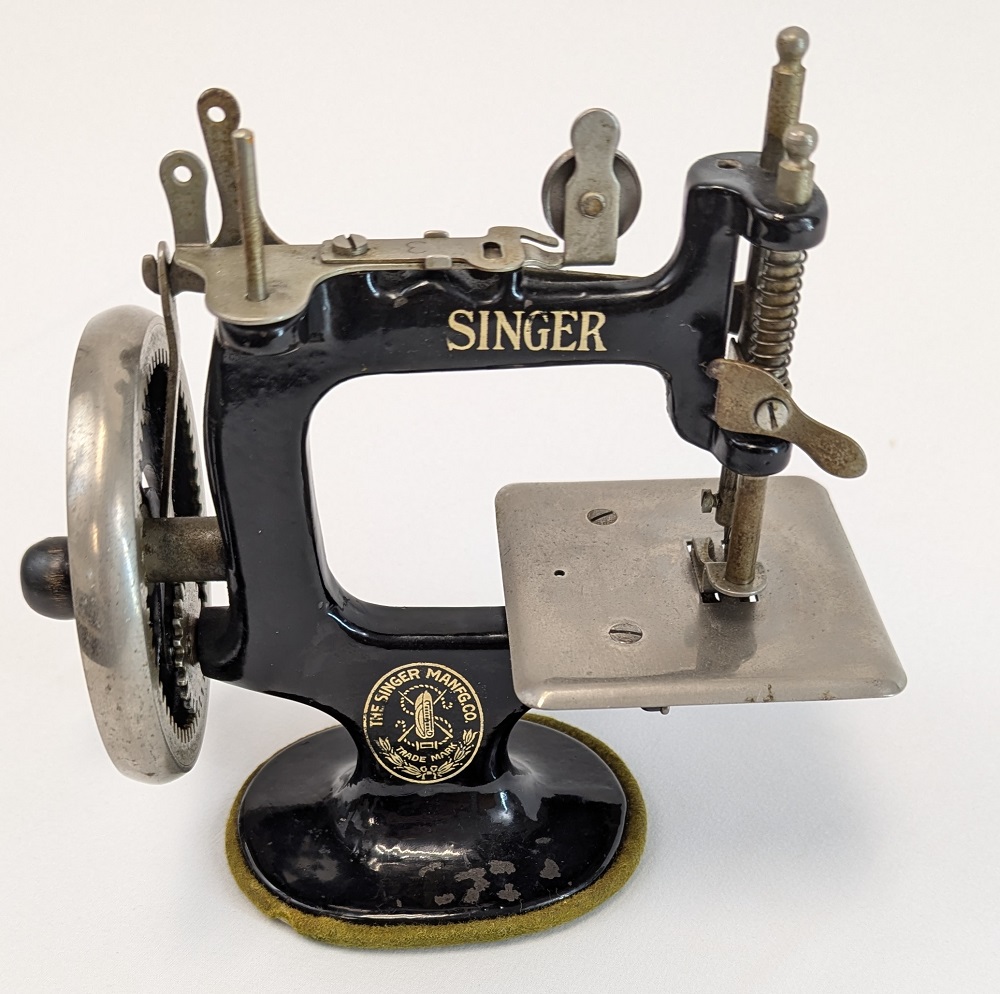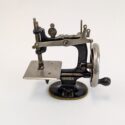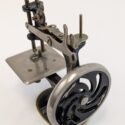An original Singer 20 child’s sewing machine is now on display at the Miniature Engineering Craftsmanship Museum. Despite its compact size, the Singer 20 functions like a full-sized sewing machine creating simple chain stitches. Well-engineered with a cast iron body requiring just 40 components, this machine uses a short 24×1 needle which has a flat shank fitted to the right so that the needle is threaded from left to right.
This tiny sewing machine was first produced in 1910 and made in New Jersey. It was originally sold as a toy before later being marketed as a portable adult sewing machine.



